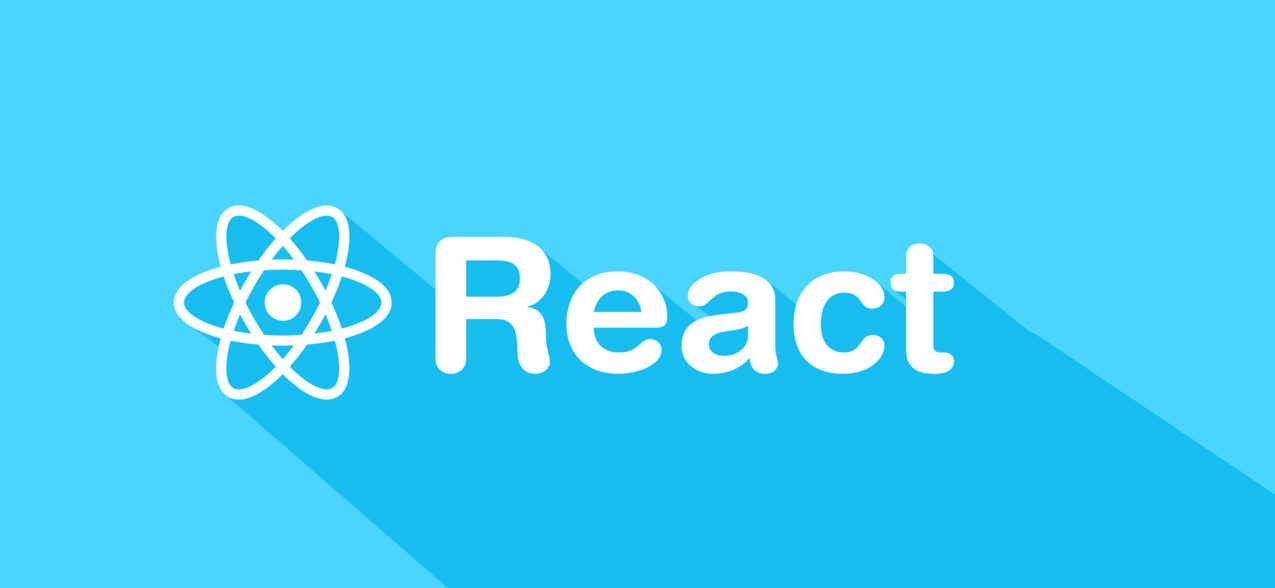
Marketing teams in modern companies embrace an avant-garde mindset expressed in finding and applying ideas to strengthen brand performance along with sales. Undoubtedly, AI sales trends in 2025 introduce new exciting opportunities to rethink core processes through the transformation of traditional marketing approaches. The ongoing digitalization with disruptive innovations sets new competitive standards, which adds urgency to the need for forward-thinking strategies. Let’s explore the forces behind these changes and highlight essential AI trends shaping sales and marketing strategies for 2025 and the future.
What Is the Impact of AI on Sales Trends in 2025?
AI remains one of the leading technologies that redefine traditional marketing with unique features and tools while tackling common challenges. For instance, specialists can minimize manual workloads, thereby increasing productivity as sales teams dedicate more effort to high-priority goals. It is reasonable to summarize the main directions in which AI empowers sales professionals:
- AI transforms sales from manual to automated workflows. Marketing teams can boost their productivity with minimum repetitive tasks, and AI also reduces the amount of manual input without compromising the quality of workflows.
- AI supports hyper-personalization and proactive engagement. The newest software solutions allow marketers to exceed customer expectations while setting AI sales automation trends for 2025.
- AI improves forecast accuracy and reduces stress. AI prevents burnout by offering data-driven projections, allowing marketing teams to expand their planning capacity and adjust sales strategies dynamically.
- AI enhances sales enablement and training. Intelligent tools have become indispensable assets for onboarding with skill development.
Sales Challenges in the Age of AI
Nevertheless, these transformations inevitably intensify competition, which poses unique challenges concerning the role of AI in sales trends for 2025. It is possible to view the current adoption of these innovations as a double-edged sword, offering both advantages and complexities. In this regard, marketing teams should learn to strike the right balance to stay ahead of their competitors. The leading challenges can be summarized as follows:
- Adapting to a Rapidly Changing Environment. Market conditions, buyer expectations, and technological advancements stress companies with a fast-evolving landscape, which forces specialists to develop new strategies. This challenge remains a leading driving force behind AI sales trends in 2025. Additionally, marketing teams should focus on resilient and flexible techniques to withstand the competition.
- Pressure to Deliver Measurable Results. Tangible impact on revenue goals forces marketers to build strategies that align with clear KPIs to justify investments. This shift stems from the aforementioned market dynamics, which adds complexity to campaign planning and resource allocation. With increasing data complexity, professionals require solutions that minimize manual input and improve operational efficiency to handle workload.
- Complexity of Digital Transformation. Marketing teams enjoy the availability of unique products and software designed to streamline operations at a reasonable cost. However, the acquisition and implementation of new solutions is a time-consuming process, and such modernization requires a systemic approach to planning. It means that professionals should consider scalability, compatibility with legacy systems, and training costs to use digital technologies effectively.
- Data Overload and Analytical Challenges. Real-time data analytics has become a must-have tool, while the constantly increasing volumes and variety of data set new standards for decision-making. Marketing and sales teams recognize that hiring is not a cost-effective approach to the challenge. Moreover, experts have to minimize errors and test multiple scenarios necessary for generating actionable insights.
- Evolving Buyer Expectations. Buyer expectations substantially impact AI trends in sales for 2025. Namely, marketers should develop a proactive, customer-centric approach to deliver personalized experiences. Brand reputation and presence are also predetermined by timely responses to customer needs, and professionals are tasked to provide solutions before issues arise.
AI Sales Trends 2025: Leading Solutions for Marketing Teams
With the right solution, marketers can navigate complex circumstances that demand precision and timely response. AI sales trends in 2025 focus on prevalent challenges while setting a new mindset to succeed in highly competitive and disruptive markets. The following categories summarize the main directions of AI development and implementation in marketing, which will shape the industry’s evolution in the years ahead.
1. AI-Driven Sales Automation and Decision-Making
The technology enables marketing teams to automate their manual tasks while creating a streamlined workflow. For example, the latest solutions offer email, sms, or productive tools that allow specialists to reduce repetitive tasks, and advanced automation features save time and resources, freeing them for high-priority goals. These innovations also support decision-making in real time, helping marketers to focus on high-value customers. It is highly recommended to invest in automation to boost performance and revitalize core operations, especially given the dominant role of AI in sales trends for 2025.
2. Digital and Self-Service Sales Channels
In the context of sales automation trends in 2025, customer empowerment is an overlooked strategy in building long-term engagement with a brand. There is an increasing tendency to make independent and quick decisions to purchase products, which requires original solutions from companies. Thus, marketers look for solutions that offer AI-powered assistants or advanced recommendation engines to enhance the self-service journey.
3. Proactive and Personalized Sales Strategies
One of the advantageous AI features denotes the delivery of highly personalized experiences based on customer data, behaviors, and preferences. Marketers can seize the power of real-time data analytics to anticipate needs and use a proactive approach to reach customers with a ready solution. This trend highlights the ongoing shift from reactive to proactive customer treatment, which predetermines the brand’s success, and AI has a decisive role in bridging the gap between customer expectations and brand responses.
4. Sales Enablement Tools and Technology Adoption
In 2025, marketing teams adopt software and sales enablement tools to refine their sales techniques. AI provides excellent features to improve skills and refine content delivery that strengthens buyer engagement. Smart tools powered by AI stand as a definite solution in optimizing costs and driving productivity by equipping professionals with real-time insights, tailored messaging, and predictive recommendations.
5. Sales Forecasting and Data-Driven Insights
Advanced forecasting tools complement the list of AI trends in sales for 2025 by underscoring the leading role of data-driven decision-making in building impactful marketing strategies. In this regard, data analytics has become a backbone for successful and cost-effective campaign planning, while specialists can timely identify emerging trends and readjust strategies. These AI-powered insights are critical in minimizing costs since marketers can tackle common challenges in disruptive marketers by utilizing these solutions.
AI in Sales: Expert Strategies for 2025
Besides the trends, marketing professionals should develop a comprehensive approach to revising sales techniques regarding AI adoption. The following guidelines will equip marketers with specific actionable strategies to effectively integrate AI into their workflows while focusing on the relevant solutions for this year.
1. Leverage AI as a Strategic Sales Copilot
AI sales trends in 2025 imply an increasing role of this technology as a full-time assistant for marketers. Therefore, specialists should not hesitate to explore and use AI agents tailored to their assigned roles and tasks in marketing teams. This tool is an indispensable asset in supporting decision-making and marketer’s autonomy, contributing to overall productivity.
2. Adopt Agentic AI for Autonomous Sales Operations
Among AI sales automation trends for 2025, the latest solutions for marketing teams constitute intelligent tools designed to manage complex processes. In this context, AI encompasses functions that exceed the traditional scope of sales operations, which further resolves management complexities. From improved lead times to workload management, it is essential to acquire an all-in-one management software powered by AI to enhance operational efficiency across the sales funnel.
3. Utilize AI-Enhanced Forecasting for Data-Driven Planning
Marketers should invest or allocate budget funds to get access to advanced data analytical tools. The newest solutions introduce AI assistants or convenient utilities that allow professionals to shift from time-consuming and stressful manual tasks to making projections. It is also a shift from traditional datasets that are prone to errors and poor performance, while enhanced virtualization and actionable insights simplify the planning process.
4. Implement AI-Driven Personalization to Elevate Customer Experience
It is critical to admit that hyperpersonalization of services is a driving force behind AI sales automation trends in 2025. Moreover, marketers should perceive this as a strategic necessity rather than an original approach to increase customer engagement with a brand. AI adoption should support the creation of content and recommendations for customers to increase conversion rates. Additionally, AI should not replace the human touch in marketing, and marketers should be attentive to homogeneity risks caused by generative tools.
5. Develop a Framework for Managing AI Adoption Risks and Challenges
New technologies introduce unprecedented risks including data privacy concerns, the need for cultural change within organizations, and questions around AI reliability that marketers must address when navigating AI sales trends in 2025. Experts should assess the organizational readiness while conducting regular audits to ensure that sensitive data or intellectual property is under protection. A professional suggestion is to develop frameworks that embrace these challenges by establishing clear policies and a culture of ethical AI use.
Final Thoughts and Takeaways
AI sales trends in 2025 mark a rise of AI assistants, data-driven analytics, and advanced forecasting tools as crucial assets for modernizing marketing and sales techniques. Indeed, investing in the right marketing solution is a high-priority objective, but professionals should focus on thorough preparation beforehand. These steps can be summarized as follows:
- Identify the specific sales and marketing challenges.
- Involve sales, marketing, and IT teams early to gather input and align objectives for new AI initiatives.
- Review current workflows, data quality, and technology stack to ensure you have the foundation needed for AI integration.
- Evaluate different AI tools and platforms, considering their features and integration capabilities.
- Define the impact of AI solutions on sales and marketing performance.
- Develop a strategy for onboarding teams, addressing cultural shifts, and providing ongoing training to maximize AI adoption.
The chosen software or AI-powered service should meet organizational needs and cultural context while a marketing team should perceive the technology as an assistive tool. This concern means that specialists need to reconsider their role and autonomy while learning to leverage AI’s potential to enhance their skills and competencies.
Frequently Asked Questions (FAQ)
Q: What are the primary AI sales automation trends in 2025 that should be prioritized?
A: Experts should prioritize AI agent adoption to automate routine tasks, intelligent lead scoring, and automated follow-ups.
Q: Which AI trends in sales and marketing for 2025 also deserve attention?
A: Professionals should seek AI solutions that foster better alignment within teams and boost customer engagement. For example, advanced software can deliver highly targeted content and automate campaign management across multiple channels, ensuring consistent messaging and more efficient outreach.
Q: Based on AI sales trends in 2025, what can professionals expect in the coming years?
A: The use of AI for forecasting, personalized recommendations, and autonomous prospecting will continue to grow. Professionals can expect AI to further transform sales by enabling more proactive and customer-centric approaches.




